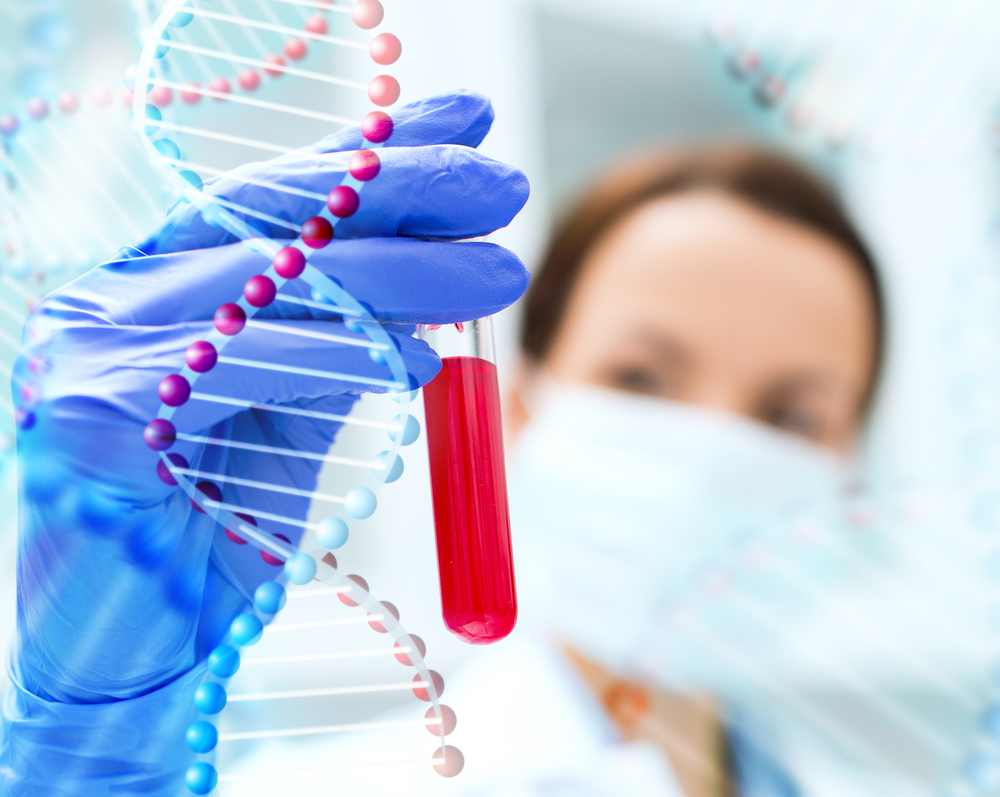Source: Thailand Medical News Sep 30, 2019 5 years, 6 months, 3 weeks, 5 days, 8 hours, 11 minutes ago
Thailand Cancer
New highly accurate single blood tests is not only fast and economical but also has a high degree of accuracy plus it can even distinguish the type of cancer, the stage of cancer and the organs or tissues involved unlike conventional diagnostics.
Medical researchers at Dana-Farber Cancer Institute, Boston have developed a new blood test that has shown ability to screen for numerous types of cancer with a high degree of accuracy. Various trials of the new diagnostic test has shown positive results and the results of a multi-center trial was presented during a session at the European Society for Medical Oncology (ESMO) 2019 Congress that is currently being held in Spain.

The diagnostic blood test, developed by Dana-Farber and GRAIL Inc, uses next-generation gene sequencing technology to probe DNA for tiny chemical tags (methylation) that influence whether genes are active or inactive. When applied to nearly 3,600 blood samples, some from patients with cancer, some from people who had not been diagnosed with cancer at the time of the blood draw the test successfully picked up a cancer signal from the cancer patient samples, and correctly identified the tissue from where the cancer began (the tissue of origin). The test's specificity its ability to return a positive result only when cancer is actually present, was high, as was its ability to pinpoint the organ or tissue of origin, researchers found.
The newly created diagnostic test looks for DNA, which
cancer cells shed into the bloodstream when they die. In contrast to "liquid biopsies," which detect genetic mutations or other cancer-related alterations in DNA, the technology focuses on modifications to DNA known as methyl groups. Methyl groups are chemical units that can be attached to DNA, in a process called methylation, to control which genes are "on" and which are "off." Abnormal patterns of methylation turn out to be, in many cases, more indicative of cancer -- and cancer type -- than mutations are. The new test zeroes in on portions of the genome where abnormal methylation patterns are found in cancer cells.
Dr Geoffrey Oxnard lead author commented in a phone interview with
Thailand Medical News "Our previous work indicated that methylation-based assays outperform traditional DNA-sequencing approaches to detecting multiple forms of cancer in blood samples.The results of the new study demonstrate that such assays are a feasible way of screening people for cancer."
The medical researchers analyzed cell-free DNA (DNA that had once been confined to cells but had entered the bloodstream upon the cells' death) in 3,583 blood samples, including 1,530 from patients diagnosed with cancer and 2,053 from people without cancer. The patient samples comprised more than 20 types of cancer, including hormone receptor-negative breast, colorectal, esophageal, gallbladder, gastric, head and neck, lung, lymphoid leukemia, multiple myeloma, ovarian, and pancreatic cancer.
The degree of accuracy was such that the overall specificity was 99.4%, meaning only 0.6% of the results incorrectly indicated that cancer was present. The sensitivity of the assay for detecting a pre-spec
ified high mortality cancers (the percent of blood samples from these patients that tested positive for cancer) was 76%. Within this group, the sensitivity was 32% for patients with stage I cancer; 76% for those with stage II; 85% for stage III; and 93% for stage IV. Sensitivity across all cancer types was 55%, with similar increases in detection by stage. For the 97% of samples that returned a tissue of origin result, the test correctly identified the organ or tissue of origin in 89% of cases.
The researchers are conducting more clinical trials to get regulatory approvals and once this new diagnostic tests goes onto the market, it can save millions of lives and even costs. As it can detect even a modest percent of common cancers in an early stage, it means that many patients will be able to receive more effective treatments in an early level before the disease progresses and becomes more difficult to treat.
